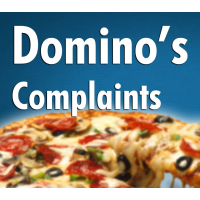Domino’s Wins Harassment Lawsuit by Claiming It’s Not an Employer

The California Supreme Court gave a boost to big corporations that sell their products through franchised stores when it ruled 4-3 last week that Domino’s Pizza could not be sued by an employee for sexual harassment by one of its franchisees.
Justice Marvin Baxter, writing for the majority, said the case came down to whether Domino’s was an employer of the franchise holder. If so, Domino’s could be held “vicariously liable for the harasser’s alleged breach of statutory and tort law.”
But the four justices decided that the franchisee was an independent contractor, with autonomy as a manager and an employer themselves. Therefore, “It is the franchisee who implements the operational standards on a day-to-day basis, hires and fires store employees, and regulates workplace behavior.”
The decision was diametrically opposed to one made by the National Labor Relations Board (NLRB) a month ago. The board declared that it will treat McDonald’s as an employer in determining if its franchises had committed 43 labor violations.
Los Angeles Times columnist Michael Hiltzik said the NLRB decision punched a hole in claims by big franchisors that they don’t set the working conditions at stores bearing their name. Conversely, they guarantee their customers will receive a uniform product and consistent treatment at their franchises because they are in control.
Hiltzik said claiming a lack of control has been “transparently bogus” for a long time, but the state Supreme Court apparently has not taken note.
Baxter went to great lengths to lay out the importance of franchises, opening his opinion with a testimonial to the “ubiquitous, lucrative and thriving business model.” He wrote, “Annually, this sector of the economy, including the fast food industry, employs millions of people, carries payrolls in the billions of dollars, and generates trillions of dollars in total sales.”
Why would anyone want to mess with that?
Daniel Fisher at Forbes said the Obama administration would like to curry favor with its union base by making it easier to organize franchises with threats of lawsuits and replenish their “mismanaged and underfunded pension plans.”
Maybe. Or it could be an attempt to hold multi-national corporations who micromanage their empires accountable for performance in stores that bear their name and answer to them.
In her dissent, Justice Kathryn Werdegar refused to give an automatic pass to franchisors. She said it was important to look at the circumstances in each case to determine their role in setting policies that could result in harassment or other illegal workplace behavior. Werdegar would have let a trial court decide that.
Justice Werdegar cited testimony in the Domino’s case that company area leader Claudia Lee had successfully pressured the franchise owner, Daniel Poff, in the past to get rid of certain employees, including a manager who had delivered non-Domino’s food to schools. Poff said he “had to pull the trigger on the termination, but it was very strongly hinted that there would be problems if I did not do so.”
Poff testified that anyone who didn’t do what Lee said was “out of business very quickly.” Werdegar said that nothing illustrates an employer-employee relationship more than the power to fire someone, and in this case, Domino’s was obviously acting like an employer.
The Domino’s case is just one more skirmish in the ongoing war over classification of workers as either employees or contractors. Corporations claim the contractor system empowers workers as small-businesses operators. Critics say it’s a duplicitous way to avoid paying payroll taxes, workers’ compensation and other benefits while shifting costs to workers and hiding behind a legal wall to avoid responsibilities for actions emanating from their policies.
Werdegar argued that the majority placed too much emphasis on the contractual agreement between Domino’s and the franchisee in determining the nature of their relationship rather than consider the “real-world interaction.” That allows Domino’s to “in effect, opt out of the statutory duties of a California employer.”
–Ken Broder
To Learn More:
Domino's Harassment Claim Tossed in Calif. (by Jeff D. Gorman, Courthouse News Service)
Court: Domino's Not Responsible for Harassment at Franchise (by Bob Egelko, San Francisco Chronicle)
In Sexual Harassment Case, California Rules Domino's Isn't Responsible for Misconduct (by Kate Taylor, Entrepreneur)
California Supreme Court Rejects Obama Administration Theory on Franchise Employees (by Daniel Fisher, Forbes)
The NLRB-McDonald's Ruling Could Be the Beginning of a Franchise War (by Michael Hiltzik, Los Angeles Times)
Big Fast-Food Chains Pay So Little, Employees Use Billions in Welfare Benefits (by Noel Brinkerhoff, AllGov)
Taylor Patterson v. Domino’s Pizza et al (California Supreme Court) (pdf)
- Top Stories
- Controversies
- Where is the Money Going?
- California and the Nation
- Appointments and Resignations
- Unusual News
- Latest News
- California Forbids U.S. Immigration Agents from Pretending to be Police
- California Lawmakers Urged to Strip “Self-Dealing” Tax Board of Its Duties
- Big Oil’s Grip on California
- Santa Cruz Police See Homeland Security Betrayal in Use of Gang Roundup as Cover for Immigration Raid
- Oil Companies Face Deadline to Stop Polluting California Groundwater





